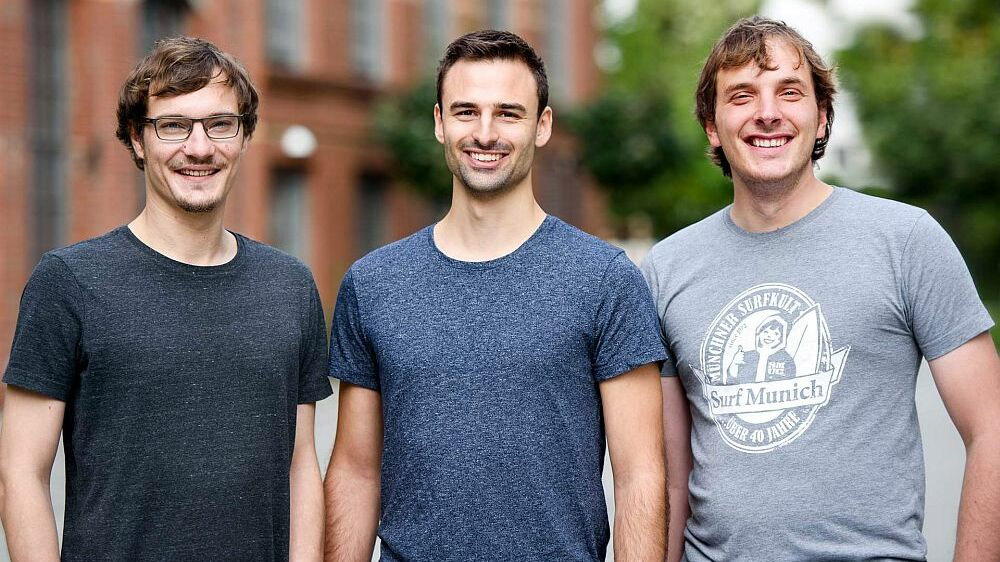vilisto

Business idea: Digital heat management solution
Industry: Sustainable technology
Year founded: 2016
Heat management with self-learning thermostats and the collection of data that can optimise the operation of a building
Category
On this page
vilisto's solution recognises when a room needs heat
vilisto develops a digital heat management solution based on thermostats with integrated presence detection, learning algorithms and indoor climate sensors. Christoph Berger was inspired to found the company in 2014 during a semester abroad at the University of California and by the simple yet effective sign “Do you want to start a business? Come by!” sign on the TU Hamburg campus from the Startup Dock (Editor’s note: now Startup Dock is named Startup Port @TUHH ) that had just been initiated.

The business idea came about during his energy technology studies at the Technical University of Hamburg (TU Hamburg): Christoph Berger wrote a project thesis in his Master’s degree that involved making predictions of room temperatures in unknown rooms and buildings. In doing so, he worked with algorithms that take outdoor temperature and solar radiation into account. “I was oriented towards studying energy technology at an early stage. At the TU Hamburg, we have a climate container at the Thermodynamics Institute. The challenge there is to air-condition it as energy-efficiently as possible,” reports the founder.
In between, he studied a semester abroad at the University of California, Berkeley (USA): “At that time, Google had just acquired the thermostat and smoke detector manufacturer Nest for 3.2 billion dollars. Oh, I thought, I’m working on a topic like that: so there’s a market for it! However, Nest was very specialised in the US market. Here in our country, there are fewer air conditioners in comparison, but we do have radiators…”, Christoph noted. In 2014, the student returned to TU Hamburg. On campus, he came across a sign: “Want to start up? Come by!” advertised the Startup Dock (Editor’s note: Startup Dock is now Startup Port @TUHH) that had just sprung up. A sign for him.
From scientific work to “Most Innovative Business Idea”
“I had two start-up ideas in mind at the time: one had to do with drones, the other with my project work. After exploratory talks, I quickly leaned towards developing the project work further. I think it was good that I had no idea what I would have to do. Otherwise I might not have started at all. The impulse came from my studies at Berkeley, where almost everyone had something to do with start-ups. In contrast to Germany, where I hardly knew anyone in this regard,” says Christoph. That was soon to change. A product idea emerged from the concept of the scientific work, which was put through its paces by advisors from Startup Dock with regard to the business idea. The Startup Dock advisor assigned to vilisto enabled Christoph to take part in the E.ON Hackathon at the end of 2014. Its CEO Dr Johannes Teyssen awarded Christoph and his team the “Most Innovative Business Idea” after two and a half days. “If they also think it’s good, it could be something,” the now graduate saw himself confirmed. So he put together a start-up team to apply for EXIST funding.
The team
Christoph had known his current technical director, Lasse Stehnken, for three years through a fellow student. Born in Kiel, he was working in Munich at the time and wanted to return home. Hamburg was close enough for him, he liked the subject and they liked each other anyway: it was a good fit!
Malte Lennart Marwede was briefly the third founder in the group: “We met Malte at the Institute for Product Development. He completed the classic McKinsey programme and initially helped us with EXIST – but then left again after six months for personal reasons,” Christoph reports. In the search for a replacement, he received about 50 applications and decided on Christian Brase, who was an ideal addition in sales and business development. Today, the start-up has 33 employees, 21 of whom work full-time.
In the beginning, vilisto employed working students to supplement them. Then, in October 2017, Christoph hired the first full-time employees: Dr Michael Heuer, for example, he knew from his studies. Together, they challenged the first simulation models. Michael originally co-founded another startup, but Christoph was able to win him over for vilisto after some time: “The first hires have to be a good fit. That’s why it’s better if they come from the environment, so they can be better assessed,” the founder emphasises. Christoph sees networks of people interested in founding a company as the next possibility. You need certain talents and a certain affinity for risk. In the advanced start-up phase, you can also hire talent that you didn’t know before through sensible sourcing.
The product
After developing a minimal product (MVP), vilisto received its first investment and was able to develop a serial product. The start-up sells its product exclusively to operators and users of non-residential buildings in the B2B and B2G market: i.e. to companies, public administration and educational institutions. The users or employees of these buildings often do not bear the energy costs themselves. This has a negative effect on the motivation to save energy. “The thermostats automatically turn off the radiator when it is warm enough in the room. We go one step further and additionally turn down the radiator when no one is in the room. Because why should your office be heated at night and on weekends when no one is there? To do this, we have installed various sensors in the thermostat to detect and learn when the room is being used,” Christoph explains. Those who like it cosy and warm can still set the temperature themselves on the thermostat. Only when the rooms are no longer in use does vilisto automatically lower the temperature, saving up to 32 per cent in heating costs and CO2 emissions, according to its own figures.
Nothing fundamental has changed in the basic concept of the technology and the thermostat since 2016. Of course, they are constantly being refined, says the founder. The market will continue to develop in the future and of course we want to be part of it. It’s all about heat management with self-learning thermostats and collecting data that can optimise the operation of a building. The staff is mainly responsible for sales, marketing, operations and technology development. The founders take care of business development and are still involved in all team issues. There used to be more manual work: “Originally, we got the parts and had to assemble them ourselves accordingly. The first 150 prototypes were made that way. Since the first series, we have been using our contract manufacturers not only for production, but also for assembling the devices, first in Tostedt, and since the beginning of 2020 in Glinde,” reports Christoph.
The customers
The targeted customers have a large real estate portfolio: They are federal states, municipalities, DAX companies and SMEs. “We can already count various customers from Kiel to Switzerland and from Cologne to Berlin as part of our climate mission,” Christoph reported in an interview with Deutsche Startups. vilisto plans to further expand its customer base. In addition to awards such as the German Innovation Award for Climate and Environment, or the Perpetuum Energy Efficiency Award, sales partnerships have also been expanded.
The vision
The entire team at vilisto is working to achieve as much impact and high energy and CO2 savings as possible. We are driven by the vision of a CO2-neutral building stock in order to make our contribution to climate protection. There is enormous potential here. Building such a company can be very intensive. Moreover, it makes sense to enter into far-reaching partnerships at different stages of the company. This can also include a merger or a purchase of vilisto for further international growth, if this serves the overarching vision and our values are upheld in the process,” Christoph concludes.






